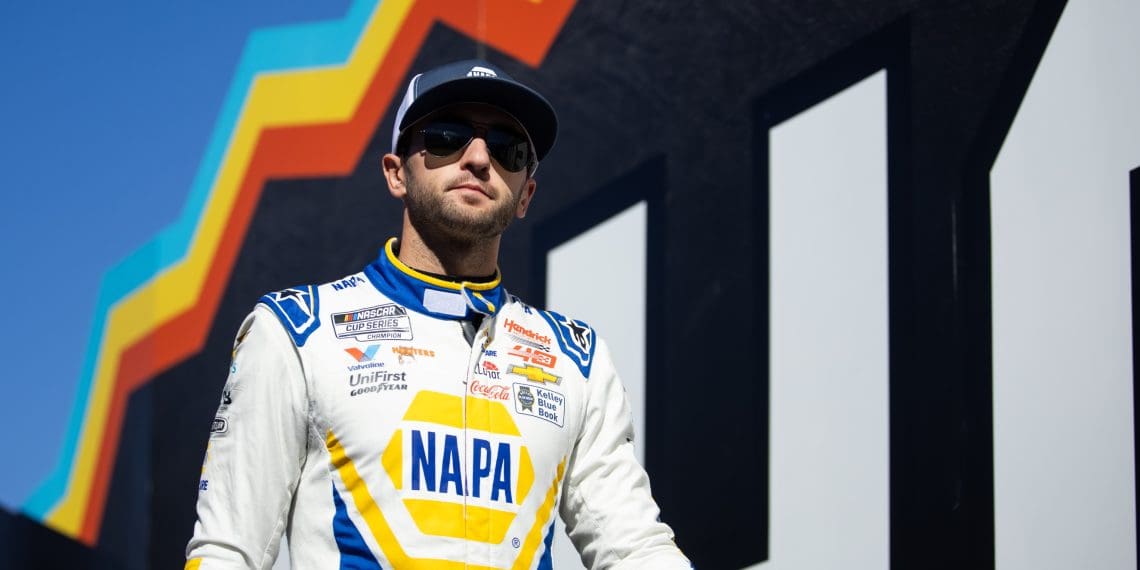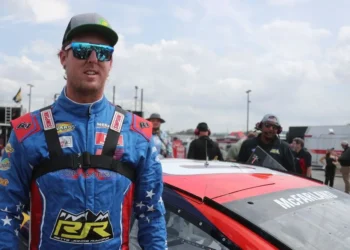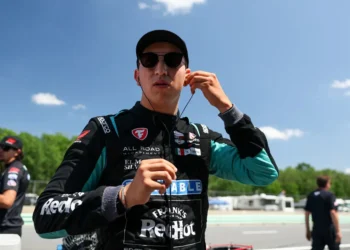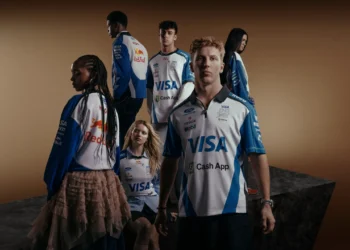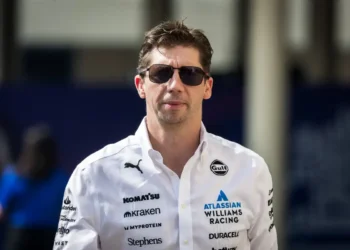Can NASCAR truly enforce its new rules to curb manufacturer alliances? Chase Elliott isn’t so sure.
For years, NASCAR teams have flirted with the line between teamwork and race manipulation, but the Next Gen era has changed the game. The days of Chad Knaus and other crew chiefs pushing the envelope with clever, borderline-illegal modifications are long gone. Instead, teams are now more reliant than ever on their OEM partners—Chevy, Ford, and Toyota—to gain an edge.
However, that growing dependency has raised serious concerns, especially after the controversial 2024 Martinsville race manipulation scandal, which saw Chevrolet drivers receive hefty penalties for allegedly influencing the race outcome. NASCAR responded by cracking down on team orders and imposing heavy penalties on manufacturers if their teams manipulate results. But heading into the 2025 season, Chase Elliott is questioning whether NASCAR can truly enforce its rules—especially at restrictor plate tracks like Daytona and Talladega, where teamwork is unavoidable.
“How Do You Police It?” Elliott Asks NASCAR
Speaking to reporters ahead of the Cook Out Clash at Bowman Gray Stadium, Elliott acknowledged that teamwork will always be a part of NASCAR—whether NASCAR likes it or not.
“You know, at the end of the day, there’s always going to be teammates, alliances, and so on and so forth. I’m not sure how you ever totally take that out of the equation,” Elliott admitted. “But from my standpoint, when you simplify it as a competitor, you always want to try to be the best that you can for your team.”
His comments come as NASCAR faces a major challenge in determining the difference between organic teamwork and intentional race manipulation.
During last season’s Martinsville race, NASCAR slapped both Ross Chastain’s No. 1 Chevy and Austin Dillon’s No. 3 Chevy with $100,000 fines, believing the two drivers helped their Chevrolet teammate Kyle Larson by slowing down rival cars. That punishment sent a clear message—but will NASCAR have the same energy when Toyota or Ford teams do the same at Daytona?
At Talladega last season, Toyota drivers were seen working together aggressively, forming a five-car draft before ultimately wrecking each other. That incident alone raised serious questions about where the line between manufacturer strategy and manipulation really lies.
The Open Exemption Provisional Debate
Elliott also weighed in on another controversial rule change—NASCAR’s new Open Exemption Provisional rule, which grants elite drivers from other motorsports a guaranteed spot in the Daytona 500.
The first driver to benefit? Four-time Indy 500 champion Helio Castroneves, who will race in the Great American Race with Trackhouse Racing under the exemption.
While Denny Hamlin blasted the rule as a “desperate” publicity stunt, Elliott was more measured, acknowledging that both sides have a valid argument.
What’s Next?
With the Daytona 500 looming, NASCAR must figure out how to apply its race manipulation rules fairly—especially on superspeedways where teamwork is a necessity, not an option.
Will NASCAR enforce the same harsh penalties on other manufacturers if Ford and Toyota teams use teamwork at Daytona? Or will this rule become a slippery slope that leads to even more controversy?
🔹 What do you think? Should NASCAR back off and let teams race, or should they continue cracking down on manufacturer alliances? Let us know! 👇

